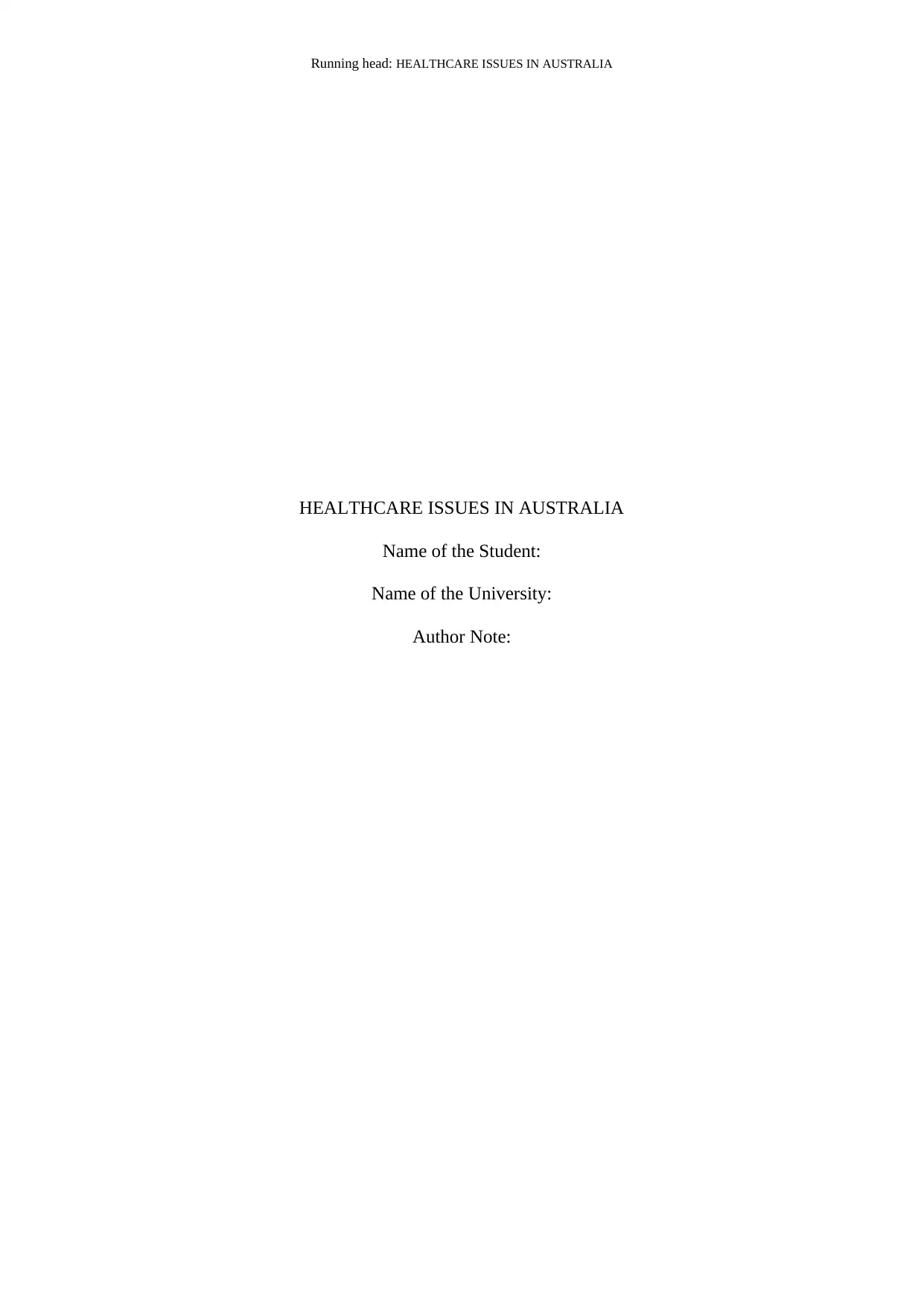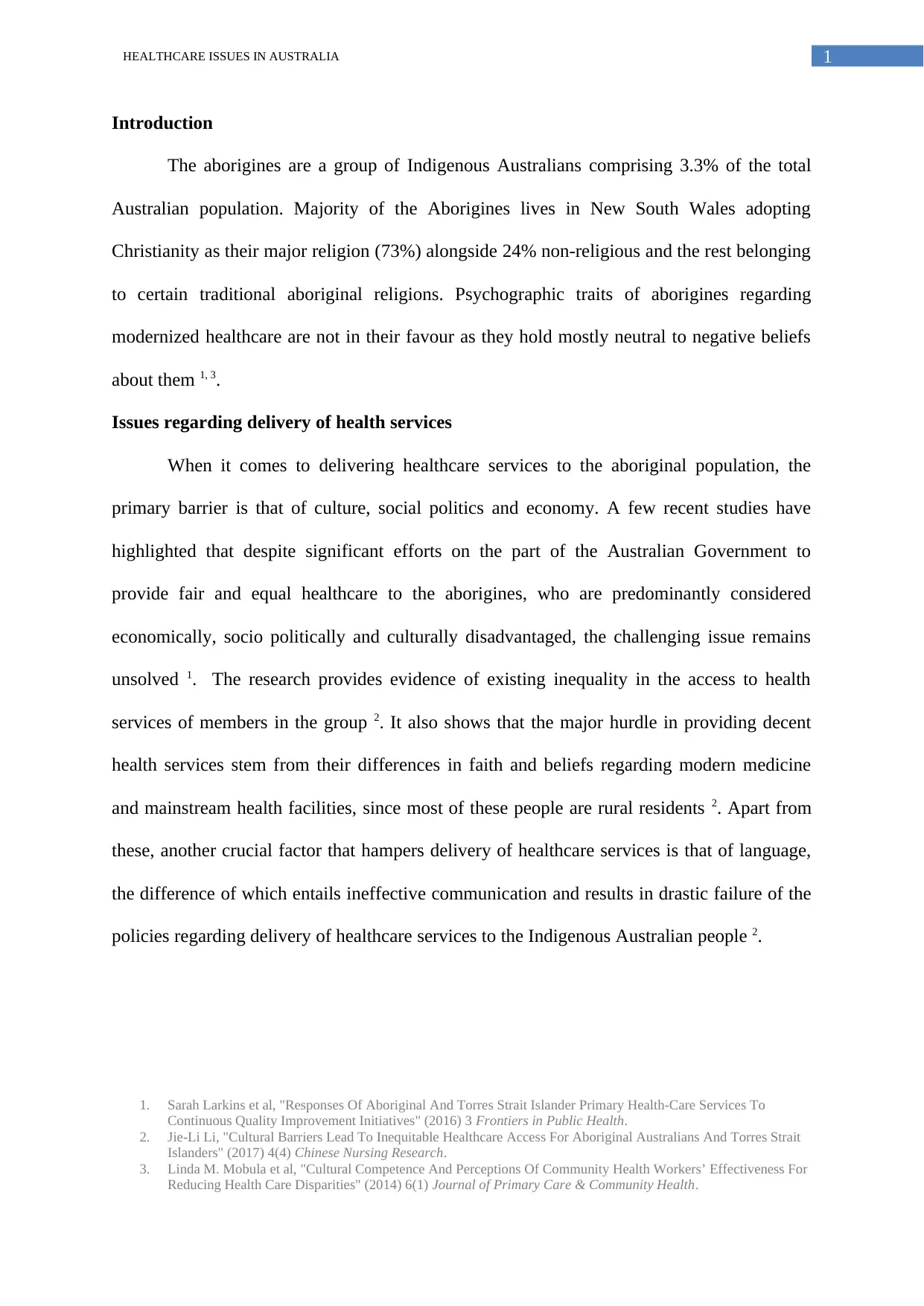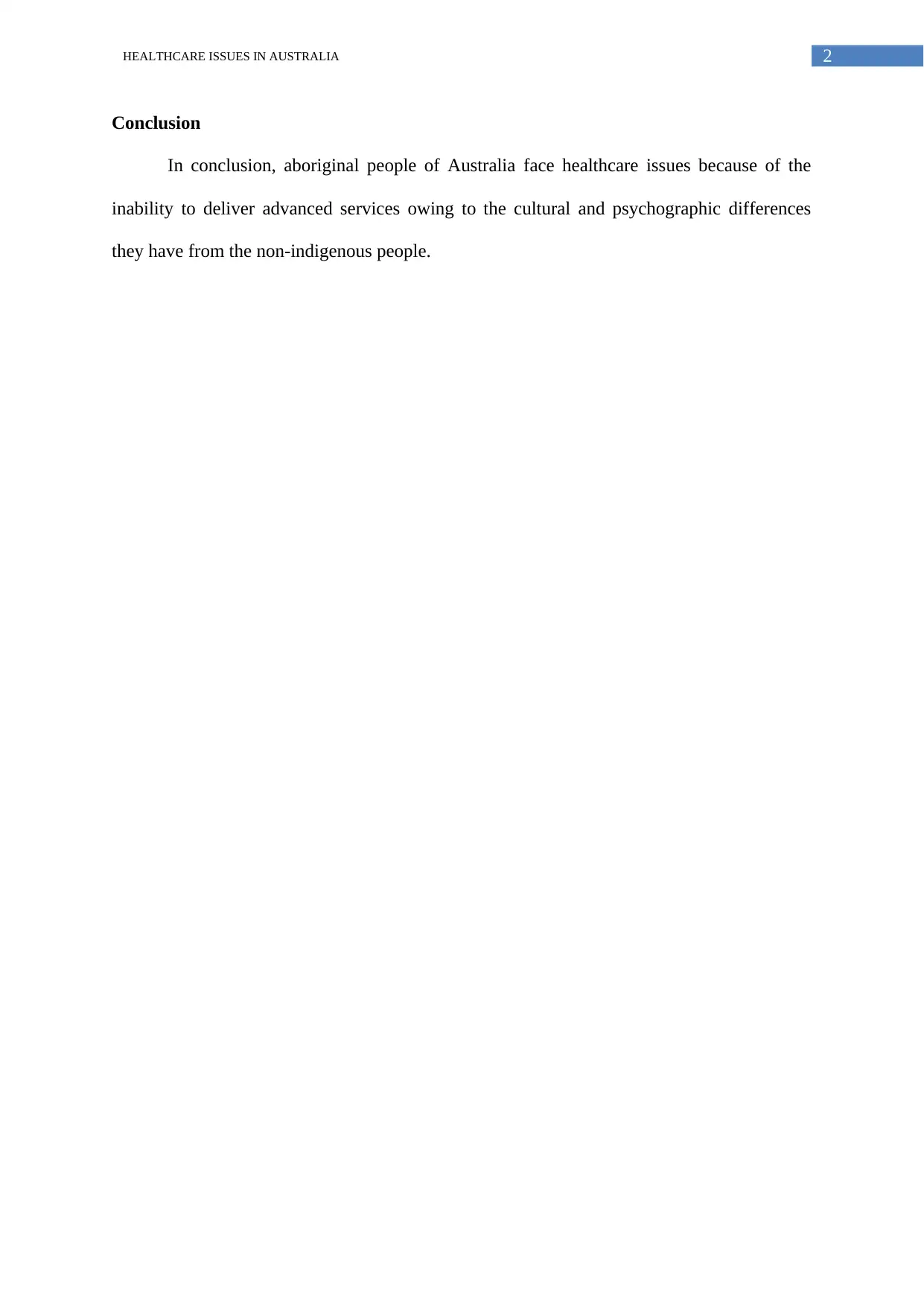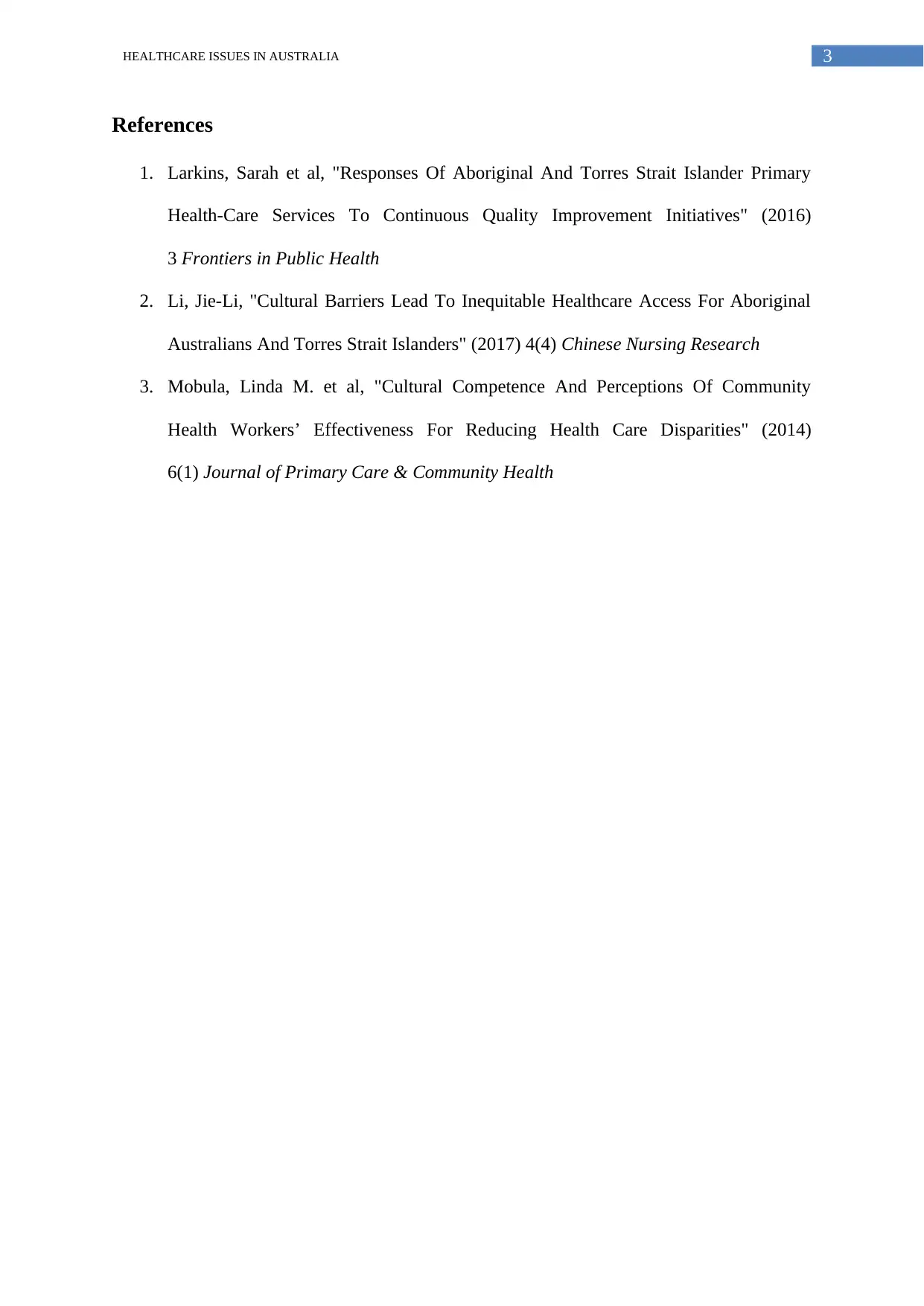Analysis of Healthcare Issues for Aboriginal Australians: A Report
VerifiedAdded on 2022/11/18
|4
|523
|267
Report
AI Summary
This report delves into the healthcare issues faced by Aboriginal Australians, highlighting the disparities in access to services. It identifies cultural, social, and economic barriers as key challenges, including differences in beliefs about modern medicine and language barriers. The study references several sources that emphasize the impact of cultural incompetence and the need for improved healthcare delivery. The report concludes by underscoring the importance of addressing these issues to ensure equitable healthcare for all Australians. The report also addresses the issue of delivering advanced services owing to the cultural and psychographic differences they have from the non-indigenous people.
1 out of 4











![[object Object]](/_next/static/media/star-bottom.7253800d.svg)